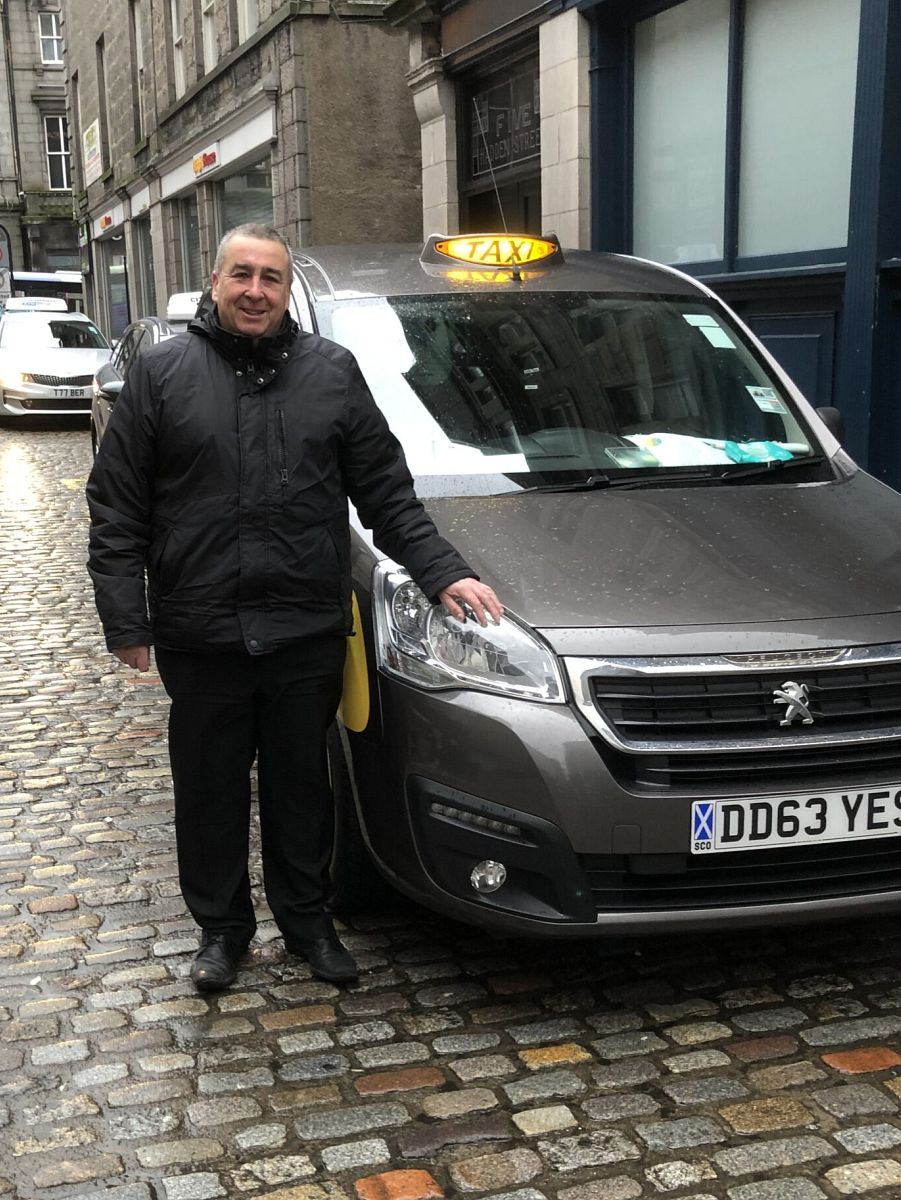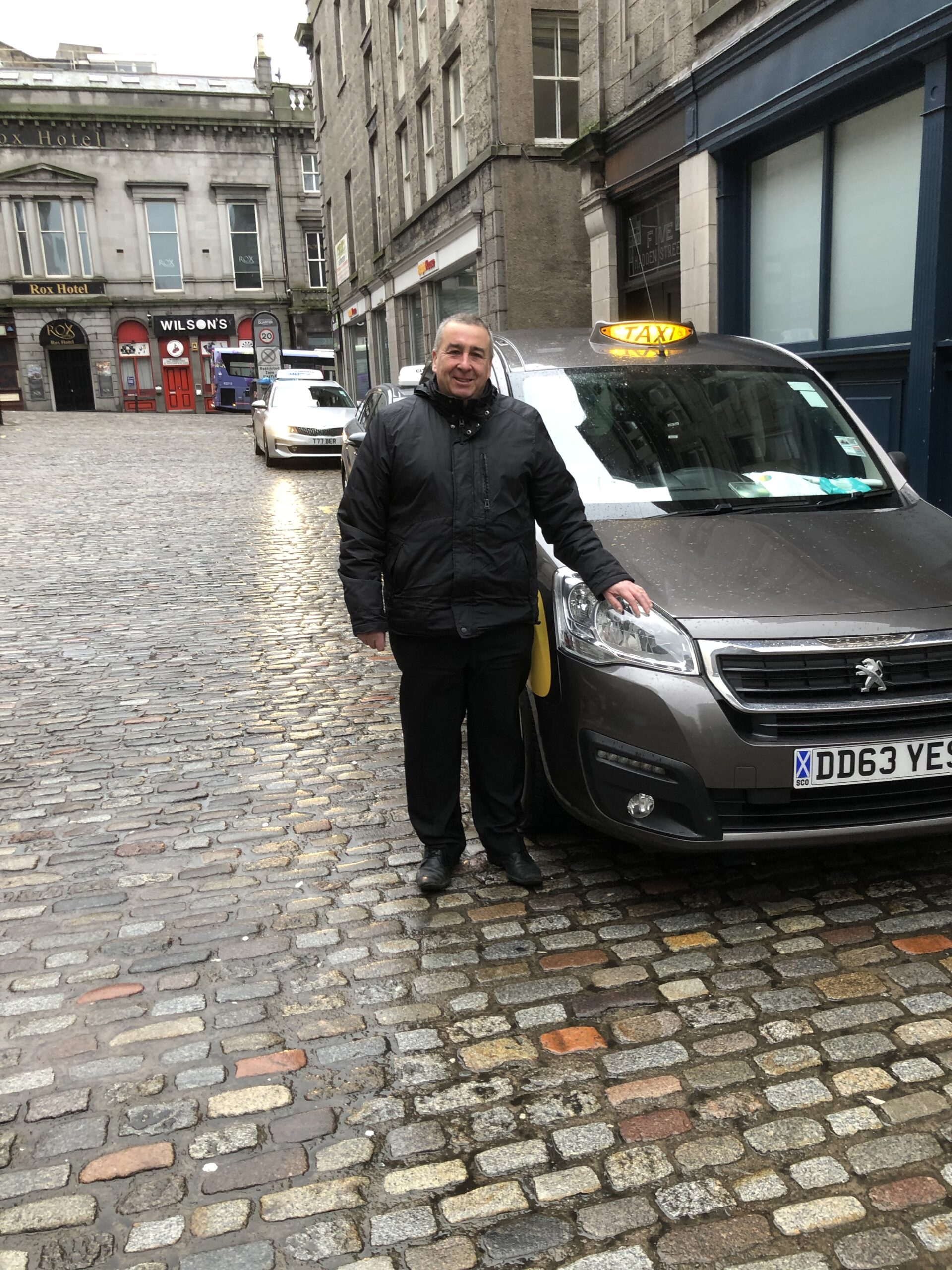As seen in our earlier article https://aberdeenvoice.com/2021/02/acc-taxi-driver-grant-handling-to-be-investigated/ , central government is giving £1500 one-off grants to eligible taxi drivers who have lost trade during lockdowns.
Edinburgh, Glasgow and other cities are distributing the funds to drivers who answer a series of questions online, submit ID, and supply bank account and sort code details.
In Aberdeen, things are not quite so straightforward.
Aberdeen City Council’s handling of the grant is being reviewed by central government and data protection agencies following Aberdeen Voice’s investigations.
Drivers here are told they can only apply electronically, must open a user account on the city’s website to access the application, and must submit a bank’s official statement showing a month’s worth of transactions.
A central government spokeswoman said:
“The requirement for the bank details is an SG condition but that is just literally account number and sort code so people can be paid into their account. Our guidance states that drivers must provide bank account details and local authorities can request appropriate additional evidence to determine eligibility.”
As a Glasgow city council spokesman we contacted added:
“The webpage doesn’t say that transactions within the account have to be shown, only the name, address, account number and sort code. A bank statement with redacted transactions is therefore acceptable.”
A spokeswoman from the Information Commissioner’s office said unofficially that she would redact transactions if asked for a statement.
ACC will neither back down from nor explain its position. The type of statement an account holder can print off themselves is not accepted; the bank must issue an official statement to satisfy ACC.
Should anyone think it is not a big deal to hand a month’s worth of financial transactions over to ACC, AV is pleased to remind readers that in 2018 ACC was investigated for a massive data breach when it sent personal details such as salary and NI numbers to third parties.
In 2019, it was reported by Jon Hebditch of the Press & Journal that the city’s computers were hacked no fewer than 15 MILLION TIMES.
Why does ACC need to see what a driver is buying and where they are spending their money?
A driver approached us who sent in their unredacted bank details and they advise they have had two attempted identity thefts following their application. Of course, this may be wholly coincidental, but it highlights the need for privacy.
Many banks, mobile companies, credit card companies will sometimes ask for details of a previous transaction in order to verify the identity of a phone caller. Anyone who gets hold of a bank statement can make an identity theft bid.
Data protection laws say personal data must not be collected unless it is required for a specific transaction, and must be destroyed once it is no longer needed. Once a driver proves who they are, their eligibility and their bank name, account number and sort code, there is no need for that driver’s financial transactions to be seen by anyone.
The question is, why does Aberdeen City Council think knowing a driver’s bank transactions is any of their business or relevant for issuing a grant once the driver establishes identity and eligibility?
Many drivers are understandably unhappy then that ACC wants sight of the applicant’s individual bank transactions. Derek Davidson told AV:
“I wasn’t aware transactions could be redacted. My understanding was that if you did this it could affect your claim being processed.”
Who in ACC will see this data and whether or not it will be destroyed as soon as it is no longer needed are unclear.
What is clear is that ACC does not need to see any personal transaction details to pay people money they are due. AV is trying to get the council to remove this intrusive, potentially illegal invasion of privacy.
After several attempts by AV to get ACC to explain its invasive requirement, we have received a list of rules and regulations, and an assertion that central government did not specify how to handle the roll out.
The city was asked if it will now follow Glasgow’s example (other councils allow redaction too, we understand) and let drivers conceal their individual bank transactions. No answer to this simple question was offered.
If the city does reverse its policy, we will advise. However, as ACC is dragging its feet since it was first approached, and we know drivers are in great need of the money, it may well come too late.
An Information Commission Office spokeswoman commented:
“As mentioned we can’t give a judgement before knowing the full facts and being able to establish formally what information the council wants, how it is being used, what their privacy policy states etc. If someone complains to us then we would look at the detail and possibly make further enquiries if necessary.
AV will be happy to hear from anyone impacted by the issues arising.
- Comments enabled – see comments box below. Note, all comments will be moderated.

 By Suzanne Kelly.
By Suzanne Kelly.